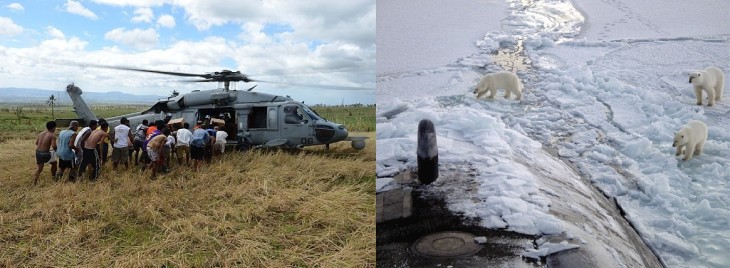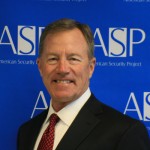Insights from the Pentagon
and a Two Year National Tour
| Date | December 11th, 2015 |
| Time | 12:00pm – 1:30pm |
| Location | American Security Project – 1100 New York Ave., 7th Floor, West Tower, Washington DC 20005 |
One year ago, the Department of Defense released its landmark Climate Adaptation Roadmap, which outlined the steps that all areas of the DoD must take to prepare for a changing climate. On Friday, December 11, ASP will host Maureen Sullivan, Deputy Assistant Secretary of Defense for Environment, Safety & Occupational Health, responsible for overseeing the implementation of the Department’s climate change adaptation efforts. She will give an update on DoD efforts around Climate Change.
Two members of ASP’s Board of Directors, Vice Admiral Lee Gunn, USN (Ret.) and BGen Stephen Cheney, USMC (Ret.) will also report on what they have learned as a part of ASP’s national climate security tour, and how important the DoD’s efforts on climate change are for national climate preparedness.
Special Remarks:
- Ms. Maureen Sullivan
Panel Includes:
Moderator:
Panelists:
Speaker Biographies:
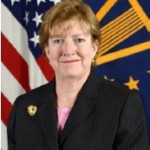 Ms. Maureen Sullivan is the Deputy Assistant Secretary of Defense for Environment, Safety & Occupational Health in the Office of the Assistant Secretary of Defense (Energy, Installations & Environment). She is responsible for DoD’s policies and programs related to compliance with environmental laws; management of natural and cultural resources; cleanup of contaminated sites; safety & occupational health; fire and emergency services; green/sustainable buildings; installation emergency management; international environmental compliance and cleanup efforts; climate change adaptation planning; strategic sustainability planning; planning to address emerging contaminants; and international defense environmental cooperation. Ms. Sullivan is also responsible for the DoD Native American program. She oversees the Armed Forces Pest Management Board and the Department of Defense Explosives Safety Board. Ms. Sullivan is the Department of Defense Federal Preservation Officer and represents the Secretary of Defense on the President’s Advisory Council on Historic Preservation. Ms. Sullivan is a member of the General Services Administration’s Green Building Advisory Committee.
Ms. Maureen Sullivan is the Deputy Assistant Secretary of Defense for Environment, Safety & Occupational Health in the Office of the Assistant Secretary of Defense (Energy, Installations & Environment). She is responsible for DoD’s policies and programs related to compliance with environmental laws; management of natural and cultural resources; cleanup of contaminated sites; safety & occupational health; fire and emergency services; green/sustainable buildings; installation emergency management; international environmental compliance and cleanup efforts; climate change adaptation planning; strategic sustainability planning; planning to address emerging contaminants; and international defense environmental cooperation. Ms. Sullivan is also responsible for the DoD Native American program. She oversees the Armed Forces Pest Management Board and the Department of Defense Explosives Safety Board. Ms. Sullivan is the Department of Defense Federal Preservation Officer and represents the Secretary of Defense on the President’s Advisory Council on Historic Preservation. Ms. Sullivan is a member of the General Services Administration’s Green Building Advisory Committee.
She also represents the Department of Defense on the White House Climate and Natural Resources Working Group and the White House Pollinator Task Force.
For the past 23 years, Ms. Sullivan has served in various leadership positions as a member of the Office of the Secretary of Defense environmental staff, and possesses wide ranging experience in numerous DoD environmental programs to include Pollution Prevention, Environmental Compliance, Historic Preservation, and the Clean Air Act.
From 2013 thru 2014, Ms. Sullivan served as the DoD member of the Federal Interagency Floodplain Management Task Force. From 2009 to 2012, Ms. Sullivan served as the Department of Defense member of the White House Interagency Climate Change Adaptation Task Force. She served as the DoD representative to the Office of Management and Budget Interagency Panel which negotiated the final Ozone and Particulate Matter National Ambient Air Quality Standards in 1997. She also served as the DoD Liaison to the President Clinton’s Council on Sustainable Development.
Ms. Sullivan was a member of the team that authored Executive Order 13148, “Greening the Government Through Leadership in Environmental Management,” which President Clinton signed on April 22, 2000. She also helped draft Executive Order 12856, “Federal Compliance with Right-to-Know Laws and Pollution Prevention Requirements.” After President Clinton signed Executive Order 12856, she was detailed to the Office of the Administrator, Environmental Protection Agency, to guide initial implementation.
Her total DoD career spans 35 years. Prior to joining the Office of the Secretary of Defense, she held positions with the Defense Logistics Agency in Virginia, Michigan, Ohio and Germany where she worked in hazardous waste management, international environmental activities and pollution prevention. Ms. Sullivan has been a member of the Senior Executive Service since 2008.
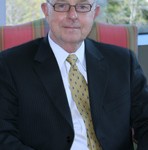 Vice Admiral Lee Gunn served in the U.S. Navy for thirty-five years prior to his retirement in 2000. His last active duty assignment was Inspector General of the Department of the Navy where, together with his Marine Deputy, he was responsible for the Department’s overall inspection program and its assessments of readiness, training, and quality of service.
Vice Admiral Lee Gunn served in the U.S. Navy for thirty-five years prior to his retirement in 2000. His last active duty assignment was Inspector General of the Department of the Navy where, together with his Marine Deputy, he was responsible for the Department’s overall inspection program and its assessments of readiness, training, and quality of service.
Serving in the Surface Navy in a variety of theaters, Admiral Gunn rose through the cruiser/destroyer force to command the Frigate USS Barbey, then command of the Navy’s antisubmarine warfare tactical and technical evaluation Destroyer squadron, DESRON 31. He later commanded Amphibious Group Three, comprising 19 ships, 12 other, separate commands, and 16,000 Sailors and Marines. As Commander of PHIBGRU THREE he served (in addition to many other duties) as the Combined Naval Forces Commander, and Deputy Task Force Commander of Combined Task Force United Shield. Task Force United Shield conducted the final withdrawal of United Nations peacekeeping forces from Somalia in February and March of 1995. United Shield was, and still is, the only amphibious withdrawal operation under fire conducted since the Korean War.
Admiral Gunn’s awards include the Distinguished Service Medal, the Defense Superior Service Medal, six Legions of Merit, two Meritorious Service Medals, the Navy Commendation Medal (with Combat Distinguishing Device), the Navy Achievement Medal, the Combat Action Ribbon, and numerous theater and service awards.
Immediately after concluding his active duty career, Admiral Gunn was asked by the Chief of Naval Operations to lead the Executive Review of Navy Training. The nine-month Review was conducted by a senior team of experts in a variety of disciplines from the uniformed Navy, the corps of Department of the Navy Civilians, and the business and education communities. The recommendations of the Review continue to be implemented by the Navy, bringing about a revolution in training and learning for Navy men and women.
Admiral Gunn has extensive experience with and substantial accomplishments in the areas of manpower, personnel and training. He served in eight assignments in those areas during his career. During his last manpower assignment (as Deputy Chief of Naval Personnel, and Commander, Navy Personnel Command) he played a key role in redesigning the Navy’s manpower and personnel establishment and orchestrated the transfer of the Navy’s Personnel Command from Arlington, Virginia to Millington, Tennessee. Relations he developed with the Congressional delegations and the business and academic communities were key to the success of this BRAC–directed move.
Gunn serves as: President of the Institute for Public Research at CNA in Alexandria, VA. (he joined CNA in 2001); Chair of the Board of Advisors of the Naval Postgraduate School in Monterey, CA; an Advisor to the Global Perspectives Initiative at the University of Central Florida; and a member and Executive Board member of the Surface Navy Association, the professional association of more than 7000 surface warriors and supporters. He served as President of the Surface Navy Association from 2001-2006.
BGen Stephen Cheney USMC(Ret) is the Chief Executive Officer of the American Security Project (ASP) and a member of the Department of State’s Foreign Affairs Policy Board.
He is a graduate of the U.S. Naval Academy and has over 30 years experience as a Marine. His career included a wide variety of command and staff positions with the operating forces and the supporting establishment. Gen. Cheney’s primary specialty was artillery, but he focused extensively on entry-level training, commanding at every echelon at both Marine Corps Recruit Depots, to include being the Commanding General at Parris Island. He served several years in Japan and has traveled extensively throughout the Middle East and Asia.
Other selected highlights of Gen. Cheney’s military career include tours as Deputy Executive Secretary to Defense Secretaries Cheney and Aspin; ground plans officer for Drug Enforcement Policy in the Pentagon; liaison to the Congressional Commission on Roles and Missions of the Armed Forces; and Inspector General of the Marine Corps.
Following retirement from the Marines, Gen. Cheney became the Chief Operating Officer for Business Executives for National Security (BENS), in Washington, D.C., and most recently was President/CEO of the Marine Military Academy in Harlingen, Texas.
Gen. Cheney is a graduate of the Marine Corps Command and Staff College, the National War College, and the University of Southern California. He was a military fellow at the Council on Foreign Relations in New York City, where he is a member. Additionally, he is also a member of the Secretary of State’s International Security Advisory Board.
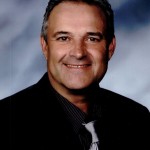 Dr. Leo Goff is the program manager for CNA’s Military Advisory Board, a group of retired three- and four-star flag and general officers from the Army, Navy, Air Force and Marine Corps who study pressing issues of the day to assess their impact on America’s national security. Their focus for the last several years has been on climate, energy, and national security. Additionally, he is a retired Navy Captain, having served for 30 years in submarines or working at the strategic leadership level in the Pentagon. He was the commanding officer of a nuclear submarine and a submarine tender. Since retirement in early 2011 he has held the position of president and owner of ACARYIS; a consulting company providing executive solutions, focused on the ways in which energy and the environment impact organizational alignment and strategic direction.
Dr. Leo Goff is the program manager for CNA’s Military Advisory Board, a group of retired three- and four-star flag and general officers from the Army, Navy, Air Force and Marine Corps who study pressing issues of the day to assess their impact on America’s national security. Their focus for the last several years has been on climate, energy, and national security. Additionally, he is a retired Navy Captain, having served for 30 years in submarines or working at the strategic leadership level in the Pentagon. He was the commanding officer of a nuclear submarine and a submarine tender. Since retirement in early 2011 he has held the position of president and owner of ACARYIS; a consulting company providing executive solutions, focused on the ways in which energy and the environment impact organizational alignment and strategic direction.
Doctor Goff holds a PhD in organizational behavior with a concentration in leadership; a Master’s degree in Public Administration; and a Master’s Degree in Executive Business Administration. He was a distinguished fellow at Maxwell School for Strategic Studies at Syracuse. He earned his commission at the United States Naval Academy, graduating with a Bachelor of Science in Ocean Engineering.
 Mr. Andrew Holland is the American Security Project’s Director of Studies and Senior Fellow for Energy and Climate. As an expert on energy, climate change, and infrastructure policy, he has worked at the center of debates about how to achieve sustainable energy security and how to effectively address climate change for the last decade.
Mr. Andrew Holland is the American Security Project’s Director of Studies and Senior Fellow for Energy and Climate. As an expert on energy, climate change, and infrastructure policy, he has worked at the center of debates about how to achieve sustainable energy security and how to effectively address climate change for the last decade.
He served as Legislative Assistant on Energy, Environment, and Infrastructure for United States Senator Chuck Hagel of Nebraska for three years from 2006 through 2008. He worked in the US House of Representatives for the House Ways and Means Committee and the Office of Congresswoman Roukema.
He holds a Master’s Degree in International Strategy and Economics from the University of St. Andrews in Scotland and a Bachelor’s Degree in History and Economics from Wake Forest University in North Carolina.
Resources:
National Security and Climate Change – Perspectives from the Military
Security Impacts of Climate Change
Pay Now, Pay Later: A State-by-State Assessment of the Costs of Climate Change
ABOUT THE AMERICAN SECURITY PROJECT
The American Security Project is a non-profit, non-partisan public policy and research organization dedicated to fostering knowledge and understanding of a range of national security issues, promoting debate about the appropriate use of American power, and cultivating strategic responses to 21st century challenges. For more information, visit www.americansecurityproject.org.


